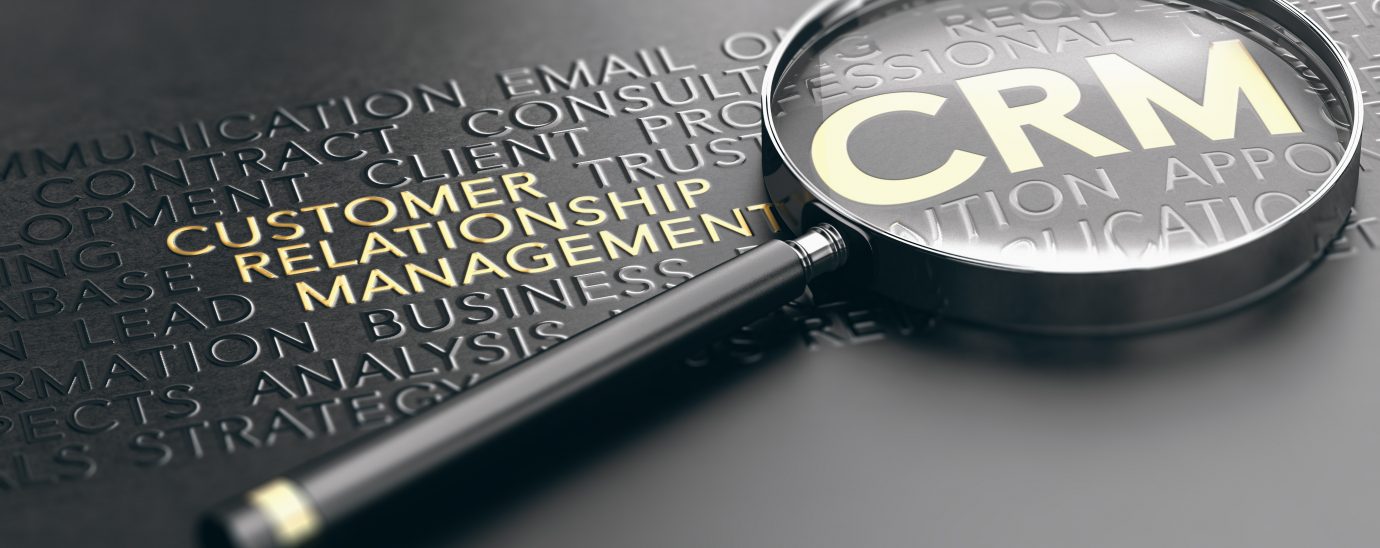Why CRM (still) fails

CRM is a core component of the operational toolkit – even SME adoption levels have now reached 79%, according to a recent survey from Workbooks. And yet, CRM success rates are still too low. For every business achieving phenomenal business transformation, another will have wasted resources and seen zero return.
As a mature market, countless CRM solutions are now available, many of which are loaded with fantastic features and functionality. So what makes the difference between CRM failure and CRM success? As John Cheney, CEO of cloud-based CRM vendor Workbooks, explains, it isn’t the technology that delivers success – success can only be achieved if companies set clear business outcomes at the point of purchase.
Pressure to Change
In a post lockdown economy, businesses in every sector are adjusting to change. Staff turnover has reached unprecedented heights as individuals rethink priorities. Customers have not just moved online but radically raised their expectations of the quality of experience at the same time. New markets have opened; others have been mothballed. It is little wonder that businesses are reassessing their existing CRM solutions and asking: why didn’t it help?
Done well, CRM provides a framework that can transform operational performance in many areas. And, as some companies discovered during the COVID-19 pandemic, a well-designed and well-implemented CRM can support rapid changes in business direction – such as the company selling window shutters direct to the consumer that moved 100% online within days, as soon as measuring up visits to the customer’s home were prohibited. And yet, the risk associated with implementing CRM is widely recognized: in the Workbooks survey and report, The State of the CRM Market: An SME Perspective, 50% of SMEs confirm they are already on their second CRM platform. Too many companies are still buying CRM, only to discover it has failed to deliver.
What’s going wrong? According to the survey, the primary reason for failure is that the CRM solution is a poor fit for the firm’s needs (53%) – yet features and functions (62%) remain the most important factor when choosing a CRM. If a business has spent time ensuring the technology is a great match, why is it still a poor fit? This is a significant investment – so why are companies making such a hash of buying such a vital tool in the business armoury, something that can utterly transform performance, profitability and customer experience?
Outcomes not Features
Taking a technology-first approach to finding the right CRM solution is a fast track to failure. Forget the features and functions – they come later. Companies need first to understand the business outcomes required from the investment. Driving revenue growth? Enhancing the customer experience? Reducing operational costs? Improving decision making? Without clearly defined business objectives, companies will struggle to achieve any value from the CRM investment, whatever product they choose.
It is only once business outcomes have been defined – and prioritized – that companies can truly understand the requirements of the CRM solution and set clear expectations for its implementation. For example, many companies are looking to CRM to deliver a 360-degree view of all customers. Fine, most systems can offer to pull data together, but why? How is that information going to be used? And where, specifically, will the value be derived?
If the desired business outcome is to improve cross-selling, then pulling all data into one place will allow the business to improve segmentation and fine-tune marketing. But will the sales team be automatically informed when customers click through a marketing email? Will these leads be scored to help salespeople prioritize their responses? Taking the time to investigate how CRM could support a priority business outcome truly turns the project on its head.
Technology Sell
Few SMEs, however, have the business analysis skills to undertake this process – and, unfortunately, the CRM industry on the whole is not set up to provide that support. For most CRM vendors, the product sell is typically features and functions focused. Then, once the deal is signed, the implementation project is handed over to an integration partner – a team that wasn’t involved in the original sales process or any discussions about the customer’s business needs.
The model is disjointed as a result: reinforcing the emphasis on ‘bells and whistles’ differentiation during the product assessment phase and offering little to no alignment with business goals or priorities – all of which can extend time to value for the customer.
Unique Business
The honest fact is that while there are some differences between CRM applications – most notably in the ease of integration, with those using open APIs making it far easier – the software is approaching commodity status. Business needs, however, are unique. Every company has its own structure, its own customer base and engagement model.
A CRM investment is about achieving a competitive edge, about being better than the competition – and actively looking to explore, capture and use business goals to define the CRM deployment makes the difference between failure and success.
Which is why SMEs need to take a different approach to buying CRM – one that starts with the business outcomes they want to achieve and, only once they have been prioritized, applies this insight to determine the functional CRM goals. Companies should look for vendors who can help them to define these business outcomes at the outset, in addition to offering implementation support. Delivering that end-to-end engagement, all the way from the initial outcome definition workshop to full implementation ensures consistent product focus and maximizes time to value.
Conclusion
When CRM projects work the business looks quite different. When projects fail, the business looks exactly the same – just financially worse off. And too many businesses, having been there before, are increasingly nervous of making the same mistakes. Faced with navigating a rapidly changing commercial landscape, companies are in a dilemma: they need CRM, they know it can work and deliver real value. But can they take the risk? Can they afford not to?
READ MORE:
- Contact centre automation is one of the main trends in CRM today
- How is SugarCRM helping companies reach new levels of predictability?
- Walsall Council appoints Agilisys as CRM partner
- Are you using your CRM to its full potential?
It is time to stop repeating the CRM mistakes of the past. Step away from product sell, the sparkly features and functions: it is businesses that prioritize outcomes and look beyond the technology – to what additional value a supplier can offer – that will be best placed to maximize ROI and achieve successful business change, fast.
For more news from Top Business Tech, don’t forget to subscribe to our daily bulletin!

